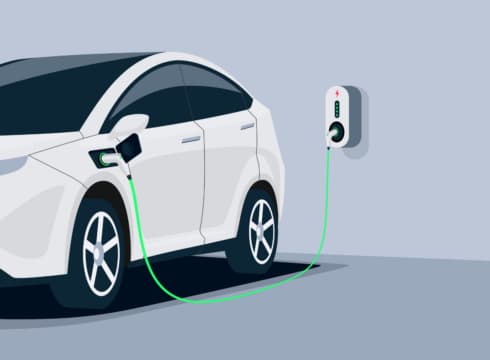The penetration of clean and green two-wheelers on Indian roads is expected to witness exponential growth of 15% by 2025 from just 1% currently
According to the Ministry of Road Transport and Highways, on August 2022, there were a total of 13,92,265 electric vehicles in India and the number is projected to reach 45-50 Mn by 2030
The government's various schemes and policies have resulted in a significant increase in the electric vehicle sector, with EV makers in India investing more than INR 9K Cr in the last year
Inc42 Daily Brief
Stay Ahead With Daily News & Analysis on India’s Tech & Startup Economy
Issues related to climate change have become a major concern in recent years, and to address the issues effectively, governments of almost all countries across the globe have been encouraging the growth of the electric vehicle (EV) industry.
In line with the global pursuit to reduce carbon emissions, India has also put a renewed focus on popularising clean mobility by supporting the EV industry players with subsidies and supportive regulations.
India’s Automobile Market
The overall automobile sector in the country, including electric vehicles and internal combustion engine (ICE) vehicles, currently is the fifth largest in the world and is expected to become the third largest by 2030.
The industry contributes around 7.1% of India’s Gross Domestic Product (GDP) and 49% of its manufacturing GDP. While the automotive sector is valued at $222 Bn, the net worth of the EV market in the country is expected to be just $2 Bn by 2023 and $7.09 Bn by 2025.
However, India holds one of the largest untapped potential for the growth of electric mobility, especially in the two-wheeler segment. The penetration of clean and green two-wheelers on Indian roads is expected to witness exponential growth of 15% by 2025 from just 1% currently. According to the data from the Ministry of Road Transport and Highways, on August 2022, there were a total of 13,92,265 electric vehicles in India and the number is projected to reach 45-50 Mn by 2030.
Government Initiatives To Fastrack Green Transformation
With support from the government and by leveraging modern-day technologies, EV industry players in the country has huge scope to work on the number of models, charging infrastructure, developing vendor ecosystem and providing financial incentives.
For a fast-paced green transformation in India, the government needs to aggressively address certain challenges like the high capital cost, lack of adequate charging infrastructure, and more. While there is a steady improvement in EV sales in the country, around 63% of consumers still believe that purchasing an electric vehicle is beyond their budget.
Creating a robust charging infrastructure has been a major goal, and there are several initiatives taken up by the government, like de-licensing EV charging station installations to facilitate the development of the charging infrastructure on a priority basis.
To increase the number of EV charging stations, the government has also extended permits for the installation of private charging stations in residential areas and offices. This means that any individual can now easily approach the local or state nodal agency for the installation of a private charging point. Furthermore, the government has issued a directive to permit the installation of EV charging points in malls, housing societies, office complexes, restaurants, hotels, and other public places.
The government has also been focused on ensuring the safety of the batteries of electric vehicles. Recently the road transport ministry has constituted an expert committee to chalk out strategies for additional safety requirements in the existing battery safety standards. The government’s move, which came into effect on 1 October 2022, comes in the backdrop of the incidents of electric vehicles catching fire in different parts of the country.
The amendments made by the government in the EV battery standards include safety requirements like battery cells, battery management systems, onboard chargers, design of battery pack, thermal propagation due to internal cell short circuits leading to fire, and more.
The transport ministry is also seeking suggestions from all stakeholders to create a more safe and clean mobility infrastructure in the country. The government’s various schemes and policies have resulted in a significant increase in the electric vehicle sector, with EV makers in India investing more than INR 9K Cr in the last year.
{{#name}}{{name}}{{/name}}{{^name}}-{{/name}}
{{#description}}{{description}}...{{/description}}{{^description}}-{{/description}}
Note: We at Inc42 take our ethics very seriously. More information about it can be found here.


